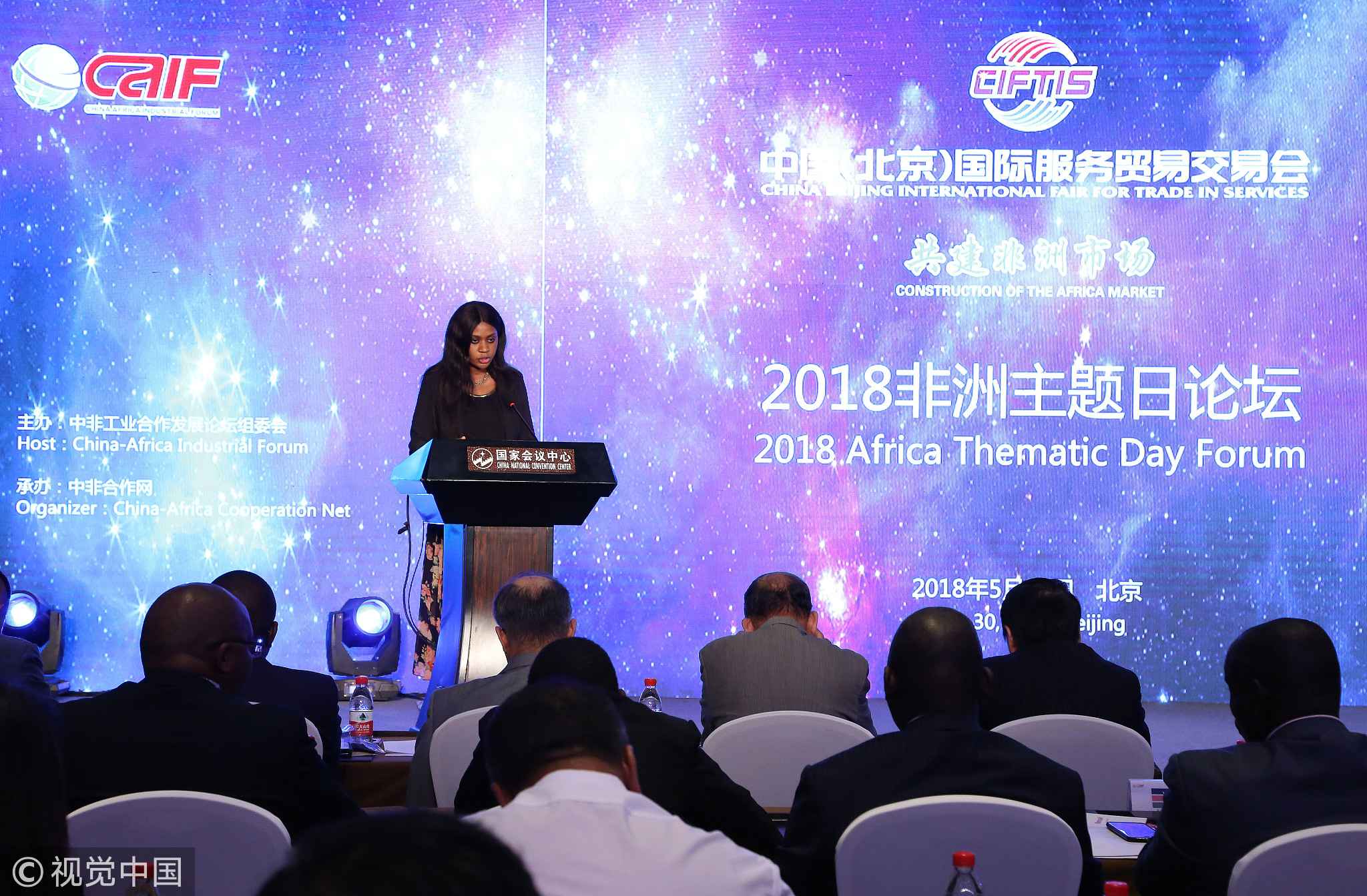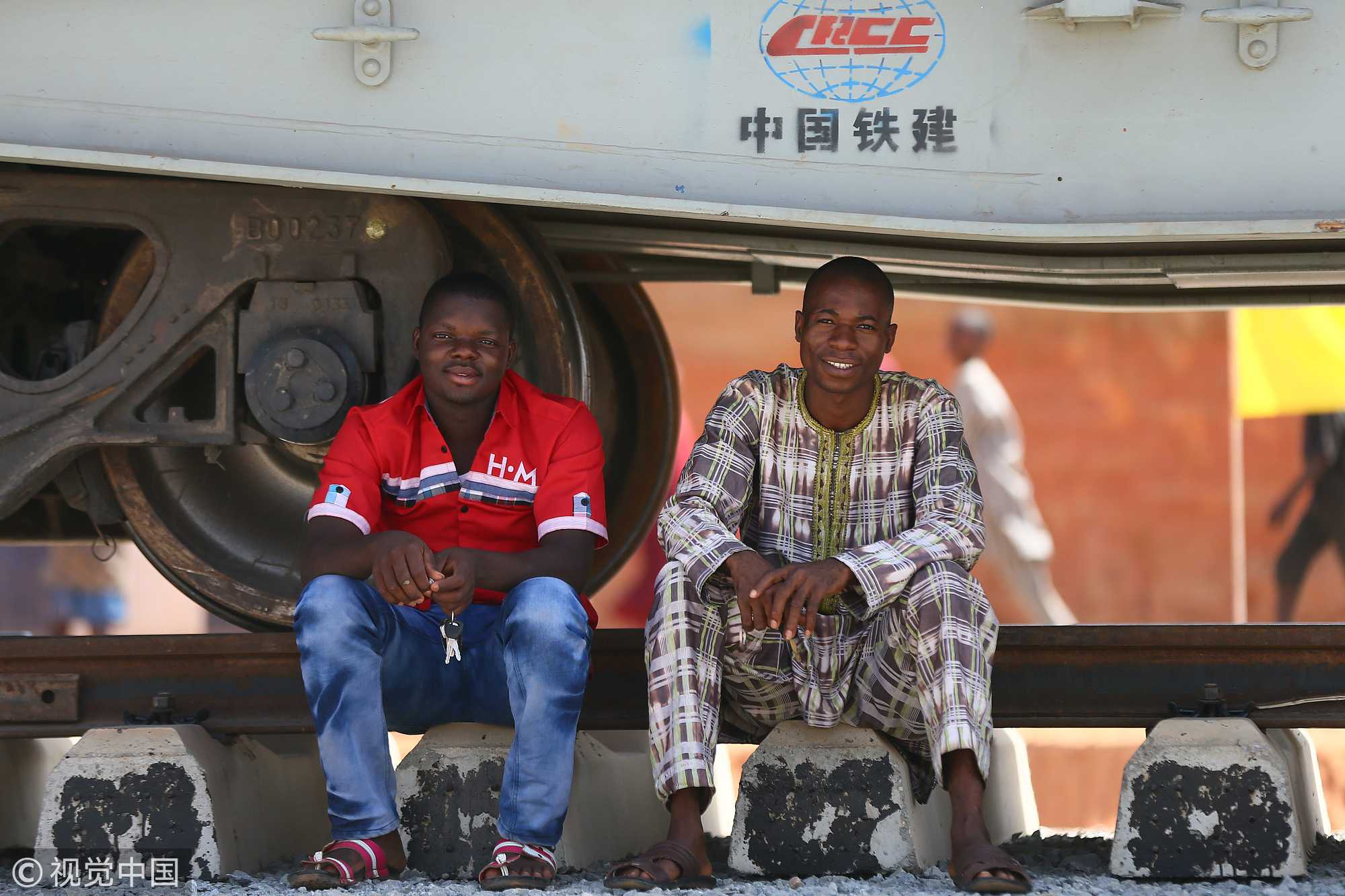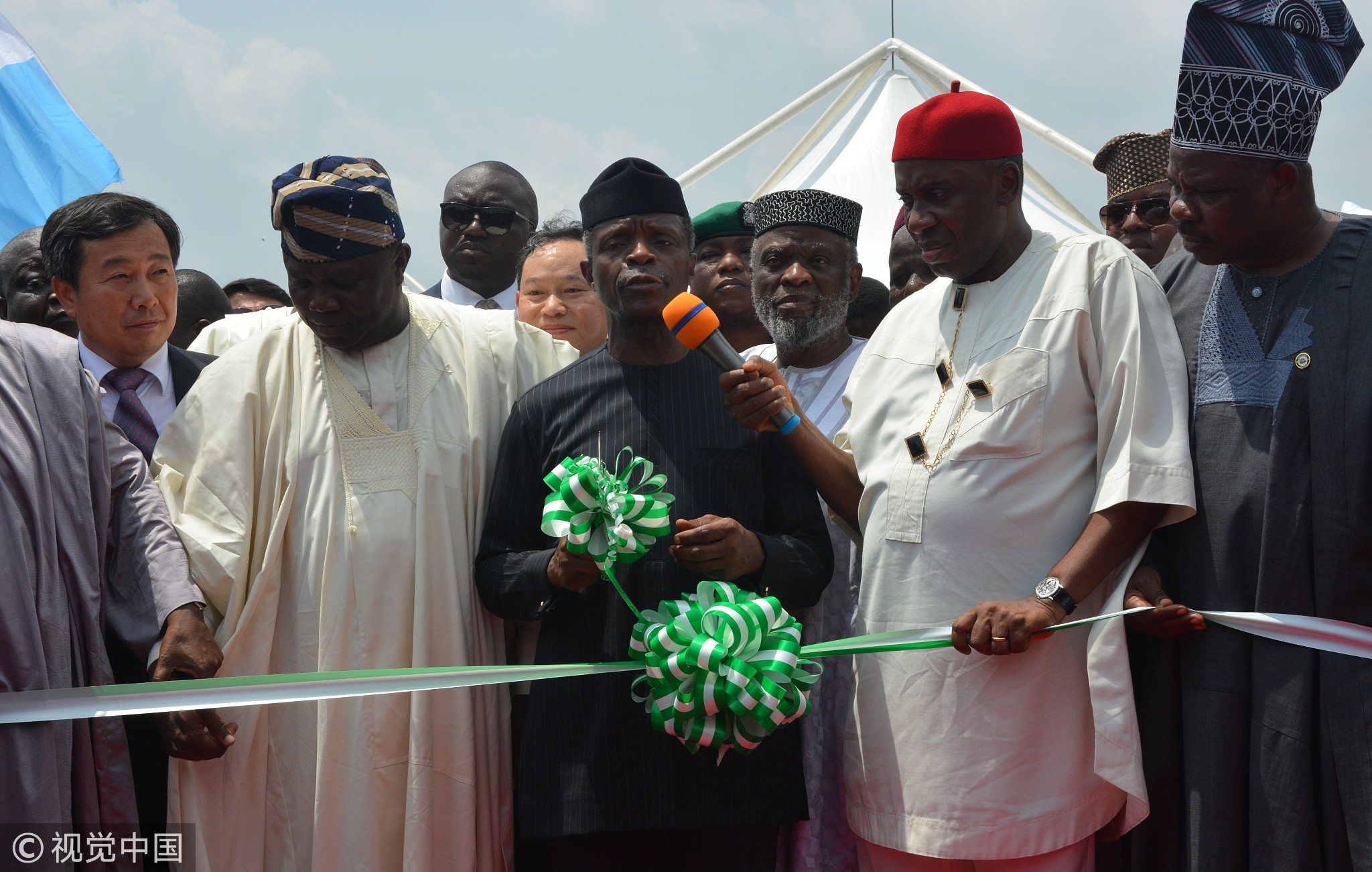Editor's note: The forthcoming Beijing Summit of the Forum on China-Africa Cooperation brings the China-Africa relations to the spotlight. Some Western media have been vocally critical of China’s investment in Africa. Shou Huisheng, a researcher at Tsinghua University’s National Strategy Institute, explains the Western donors’ aid trap and China’s success in Africa in two pieces. Here is part two. The article reflects the author's opinion, and not necessarily the views of CGTN.
In the first part, we talked about the institutional problems that made African countries trapped in international aid. It is also these institutional problems in the Western aid framework that help highlight the importance of China’s approach to helping Africa.
The Chinese approach is in certain ways different from that of the West, which is anti-market by nature. China's official capital flow to Africa has been heavily in favor of investment, with aid taking quite a limited role.

Gambian Deputy Ambassador to China delivers a speech at the African Theme Day Forum of the 2018 Beijing International Trade Fair, May 30, 2018. /VCG Photo
For example, in 2015 when the Chinese government announced 60 billion US dollars of capital support to Africa in the following three years, only five billion US dollars of the package were earmarked for official aid while the biggest part took the form of loans and investment funds, indicating that China preferred the market-based approach in its cooperation with Africa.
While the West today is concerned about the strategic intentions and implications of China in Africa, it is undeniable that the fate of Africa has been dramatically changed through its cooperation with China. China certainly was not, and is still not, the only emerging market going to Africa.
Many others, such as India and Malaysia, began injecting money into Africa around the same period, showing a global trend of South-South cooperation in a new environment.

Africa's first Chinese standard modern railway was established in Nigeria. /VCG Photo
But China’s entry obviously has been the most significant due to the sheer scale of Chinese demand and investment in Africa.
Additionally, China's approach in Africa has given African societies and governments more options.
China’s flexibility and tolerance give Africans what they have long been missing: autonomy, freedom, and, most importantly, incentives for change.

March 7, 2017: Vice President of Nigeria Yemi Osinbajo attends the ground breaking ceremony for the Nigerian Railway modernization project at Nigeria Railway Management in Lagos, Nigeria. /VCG Photo
And the effect of this approach is precisely the most valuable thing about market – to provide as many options as possible so as to promote freedom.
This is not to suggest that China’s practices in Africa are perfect. Certainly the flaws one can find in international firms can be easily found in Chinese firms in Africa as well.
But the West, by being busy guessing China’s strategic intention in Africa and criticizing China’s unconventional and imperfect way of doing business has overlooked a simple fact: development, fundamentally speaking, can be very simple – the core of which is to provide local agents with incentives to allocate resources in a reasonable way.
The recovery of China’s rural economy and development of China’s market economy in the early years of reform all relied on this simple logic. Unfortunately, this simple fact can be easily denied by rigid ideologies and worldviews, either in China or in the West.

May 30, 2017: A locomotive train car at the container terminal of the port of the coastal town of Mombasa. /VCG Photo
For the past four decades, the most valuable lesson the Chinese people have learned is to allow market to be the engine of growth, allow local governments and individuals to take charge of their development approach, and let them pay for the decisions they made.
Chinese have paid a decent price to understand this lesson and are now using the same lesson to guide their investment and assistance in Africa – and it has worked so far in changing Africa.
The West cannot afford to deny the value of these experiences and deny Africans an opportunity to develop.
0
推荐




 京公网安备 11010502034662号
京公网安备 11010502034662号 